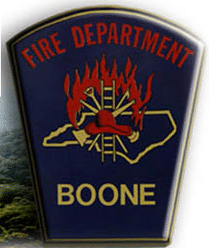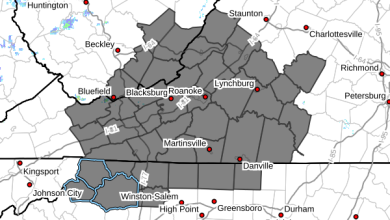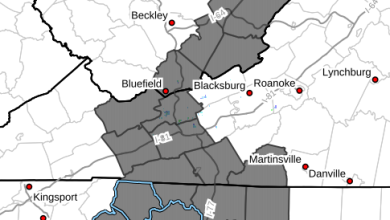
Last Updated on December 6, 2023 3:28 pm
December, 2023 – Boone Fire Department wants everyone to have a safe Christmas. Over 25 percent of home Christmas tree fires are caused by an electrical problem. Another 25 percent are caused by trees too close to a heat source. Although Christmas tree fires are not common, when they do occur, they are more likely to be serious. Keep the following tips in mind when selecting, placing and lighting your Christmas tree.
PICKING THE TREE
- Choose a tree with fresh, green needles that do not fall off when touched.
- The trunk should be sticky to the touch and branches should not easily snap when bent.
PLACING THE TREE
- Before placing the tree in the stand, cut 2” from the base of the trunk.
- Make sure the tree is at least three feet away from any heat source like fireplaces, radiators, candles, heat vents or lights.
- Make sure the tree does not block an exit.
- Add water to the tree stand and add more water daily.
LIGHTING THE TREE
- Use lights that have the label of a recognized testing laboratory. Some lights are only for indoor or outdoor use.
- Replace any string of lights with worn or broken cords or loose bulb connections. Read manufacturer’s instructions for number of light strands to connect.
- Always turn off Christmas tree lights before leaving the home or going to bed.
- NEVER USE LIT CANDLES TO DECORATE THE TREE.
ARTIFICIAL TREES
- Artificial trees and decorations should be labeled, certified, or identified by the manufacturer as fire-retardant or flame-resistant.
ELECTIRCAL SAFETY
- Only use extension cords that have the label of a recognized testing laboratory.
- Do not place heavy items on power cords.
- Do not run cords under carpets, through windows or doors, through walls, ceilings or floors or other areas where they may be subjected to physical damage.
- Do not piggy back extension cords or surge protectors. Surge protectors should be plugged directly into an outlet.
- Do not overload electrical circuits.
SMOKE AND CARBON MONIXIDE ALARMS
- Be sure you have working smoke alarms.
- Test alarms monthly.
- Replace batteries at least once per year.
- Replace smoke alarms when they reach the end of life per manufacturer recommendations (typically 10 years).
- Carbon monoxide alarms are needed whenever your home is heated by or has an appliance that burns fuel oil, kerosene, propane, natural gas, wood or other fossil fuel, or the residence has an attached garage.
- Carbon monoxide alarms should be tested monthly and have the batteries replaced at least once per year.
- Replace carbon monoxide alarms per manufacturer recommendations (often 7 years).
AFTER CHRISTMAS
Boone Fire would like everyone to get rid of the tree after Christmas or when it is dry. Dried out trees are a fire hazard and should not be left in the home, garage, or placed outside against the home. Check with your local community to find a recycling program. Bring all outdoor Christmas lights inside for storage after the holidays to prevent hazards and make them last longer.
















